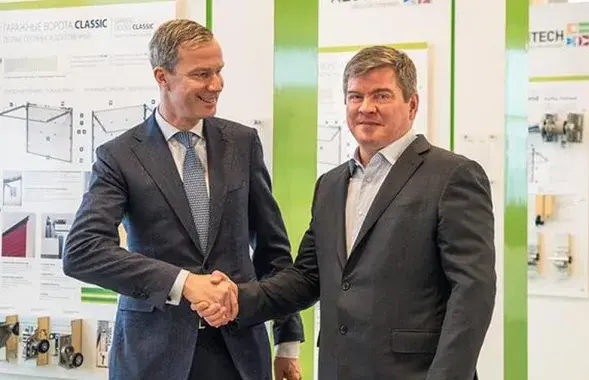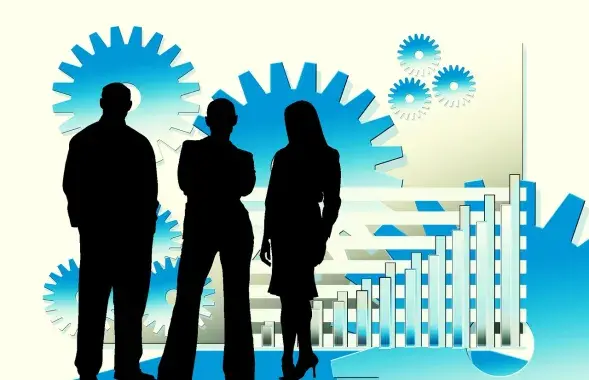Aleh Hulak: I have no illusions about these elections
What is the situation with elections today? What human rights are being violated? What are the improvements compared to the previous elections?
A.H: One good thing is that there has been less formalism in the operation of electoral bodies. I will not say these are radical changes. But there is less stupidity when people would be prevented from filing relevant paperwork. In this sense, it is better. What has not changed is how election commissions are formed. There is certain math but it does not change the essence. The figures are a bit different. There is opposition. Well, this is a positive moment.
ERB: Could please name the figures? How many opposition members are there?
A.H: There are 42 people among a total of 70,000 members of election commissions. This accounts for 0.07 percent and should be disregarded. These people can only take out some information from the commissions they participate. They cannot do anything real. On the whole, they cannot influence on the results of the elections. In this regard, there are no changes, unfortunately. The negative thing is that all pro-democracy candidates and observers have been exposed to unjustified pressure from fiscal and tax authorities. It did not happen before.
Now we have to visit the tax inspection and the department of financial investigations. The Belarusian Helsinki Committee has been under scrutiny of the revenue authorities. I think it is a new technique used by the authorities to put pressure and intimidate ahead of the elections.
ERB: Will the changes that are taking place benefit the Belarusian opposition in the sense that the opposition enters the parliament?
A.H: I have no illusions about these elections or that oppositionists will be able to win. The composition of elections commissions will allow the authorities to get a required result. Unfortunately, these commissions are not the instrument of fair elections.
I think there will be less pressure during the campaign. It will be freer than before. This, of course, raises the chances of the opposition to get seats in the parliament and get popular support. Still, the chances of getting into the parliament are small. Apart from the cases when several opposition MPs are regarded as part of the current administration’s plan. Only if the government wants to see the opposition in the parliament, then we will see it.
ERB: Does it mean that the chances of getting MP seats are not associated with how people will vote?
A.H: Judging the situation realistically, we understand that not all the candidates from the opposition have chances of winning. The whole environment prevents the opposition from having no such chances.
ERB: What do you mean?
A.H: Many opposition candidates have no real electoral support base. They need to get at least 30,000 votes. It is very difficult in majority elections. Realistically, even if votes were counted correctly, only few opposition candidates could count on victory.
ERB: Who are those few?
A.H: There are people who work thoroughly in their constituencies. People know them. They have much better chances than those who were nominated because someone had to be nominated. Unfortunately, this is reality.
ERB: Do those in the opposition camp who call for election boycott have a point?
A.H: What is the benefit of boycott? I have not seen any serious argument in support of boycott yet. I have not heard any serious argument that the opposition benefits from the boycott, either. It is true that it is impossible to do anything. But where are we going to get another country? If we talk politics, politicians need to work with the situation that they have in order to make it better. In my opinion, the situation can be improved only by participating in the elections.
Boycott… I can not see any boycott campaign today. There is a political position of boycott, but there is no boycott campaign. These are two different things.
ERB: Some say that it is better to boycott and explain voters the reasons than participate, lose and then say that elections were not democratic and free…
A.H: It depends on the goal. If the goal is to grow electoral support base, all means should be used in order to work with people. If the goal is to explain that it was bad… People should be told that it was bad. People should be shown what can be done better. People are tired of hearing that everything is bad. They see with their own eyes what is bad. They will not follow those who say it was bad to the barricades.
ERB: Mr Hulak, you are in Poland now. Who are you going to meet? What is the aim of your visit?
A.H: Firstly, we will have a presentation of our report on the human rights situation in Belarus. We also have scheduled meetings with our colleague from the Polish Helsinki Foundation. We will also meet several diplomats and people who follow Belarus.
The official propaganda deceives people by saying that if foreign diplomats display interest in the human rights situation; they interfere with the country’s internal affairs… No. These activities are totally in line with the Helsinki agreements in the framework of OSCE. Human rights are the basis of peace and stability. Therefore, we cooperate closely with diplomatic mission which are interested and can do something useful for our country.
ERB: What are the concrete measures?
A.H: In my view, it is very important now to give a real respond to the Belarusian authorities; not only saying that we are very pleased with the release of political prisoners but making concrete steps so that the leadership in Minsk also understands that if they make correct steps from the viewpoint of today’s civilization, they will get dividends. That would right.
I am not a politician. I defend human rights. Basically, I don’t care about the name of the president or which party will be ruling. It is important that everything the government in Belarus does should be in line with human rights and democracy. Names are secondary. We are ready to help the authorities in this. If the government does wrong things, we criticize and seek the instruments of pressure in order to make it do right things.
If Lukashenka became a democratic president, I don’t see a problem. There were certain things in the past. But in principle, deeds are important. It is normal for politicians to want power and change the existing power and see what they see fit. I totally support the desire of all Belarusian politicians. They have the right to bring their views to people and seek their support. They should have opportunities for that. Then, it will be people to decide which platform to choose.
ERB: The release of political prisoners was the main demand from US and EU. They are now free. Which adequate steps can the West make in respond?
A.H: In my opinion, there should be a step that the Belarusian authorities could understand clearly. At the same time, it is important that there was no set back from the previous principles. There was no serious policy towards Belarus. There was a serious stringent position, but there was no policy. There were no incentives developed. The position was voiced, but there was no serious policy.
There is a danger that Europe will wish to take another extreme position in terms of a wide cooperation with the government as if nothing happened before and as if everything was fine.
In fact, it is clear that not everything was fine. These are just first steps. A serious policy and serious steps are required so that the beginning would not become the end. There should be steps that could lead to a softer situation in the country in terms of democracy.
Actually, the work is just beginning. Before, everything was clear: the regime is bad and does nothing. Now, everything is very unclear. A very complex work has begun, in my view.
ERB: Could the restoration of trade preferences become an adequate step? Is it a too generous step?
A.H: I think that this step should be regarded as adequate. Unfortunately, the problem is that we understand little what is happening in our country. We understand little on what the Belarusian regime is based. What are the weak and strong points? There is very little analysis on this. There should be more economic analysis. Political analysis is almost non-existent.
When we talk about preferences, we need to have a detailed analysis of how the abolition of preferences affected the government. We don’t know it. What you can find in the internet is not sufficient to take serious decisions. That’s why it is difficult.
ERB: What are your relations with the authorities? Do they listen to your complaints and statements?
A.H: Relations are complicated. I have worked with the committee for ten years. I saw various kinds of relations. I came when the committee had much more opportunities to work than today. It was a more interesting work. We were able to do much more for the society and the country than we do now. The operation of human rights defenders helps the government to look better in terms of the country’s human rights record. If the government is ready to accept this assistance somehow, then our work is efficient. If the government treats us as enemies, we can only criticize. It is less constructive and less useful.
ERB: Are they ready to accept you?
A.H: Unfortunately, not. Over my ten years in the organizations, the government has displayed less and less readiness to accept our criticism. Nevertheless, they have to count us, because the Belarusian Helsinki Committee is a respected organization. It has high reputation internationally. Officials treat us with interest and understanding in most cases.
Unfortunately, we cannot make a full use of our huge potential. We have huge possibilities, but we can’t use them, because the government is not interested. I think that if the situation improved and became freer, we could do what we see important and necessary. We would then have 300fold more interesting and useful work than just writing reports and saying that everything is bad.
ERB: Do you still have any chance to influence on the democratization of the country?
A.H: Of course. We are the only national election observers. The Central Elections Commission is definitely interested so that we write a better report. They want to show a better performance. So we started with what is positive. I am confident our work could also bring something better.
Photo by svaboda.org

















